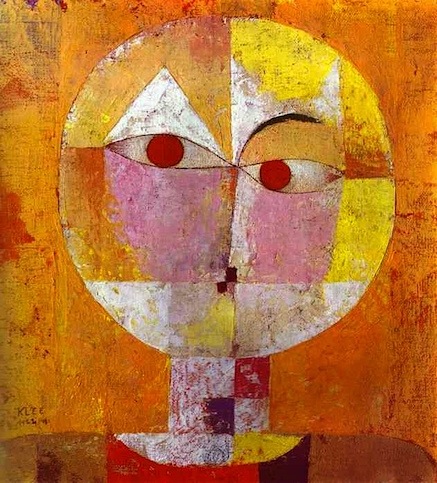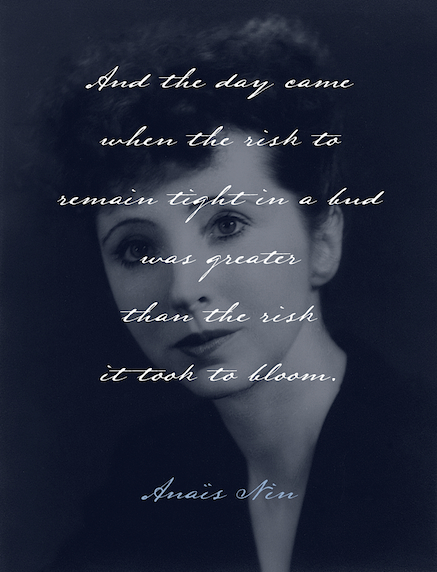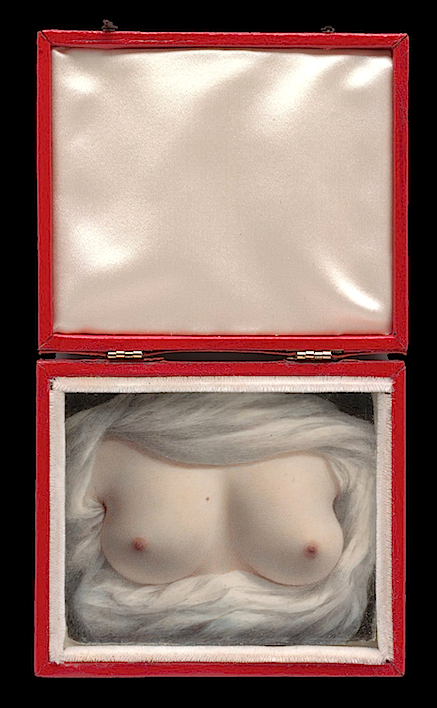
Boston, Massachusetts, 1828
I came across an image of this exquisite miniature yesterday (6.7 cm x 8 cm, watercolour on ivory), and was intrigued to find out about its origin.
Painted as a self-portrait by Sarah Goodridge and given to statesman Daniel Webster after his wife died (Webster sat as a model for Sarah twelve times over two decades), it presents a provocative twist on the “traditional lover’s eye miniatures so popular in London” at the time. I know it would have gotten my attention…
Below is another watercolour-on-ivory self-portrait miniature done by Sarah (who never did marry) two years later, in 1830 (10.2 cm x 7.6 cm).
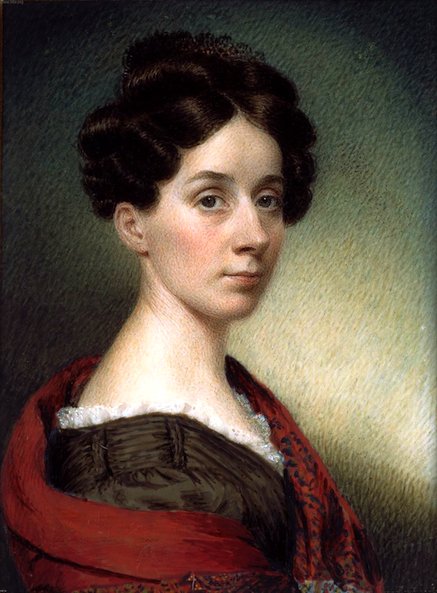
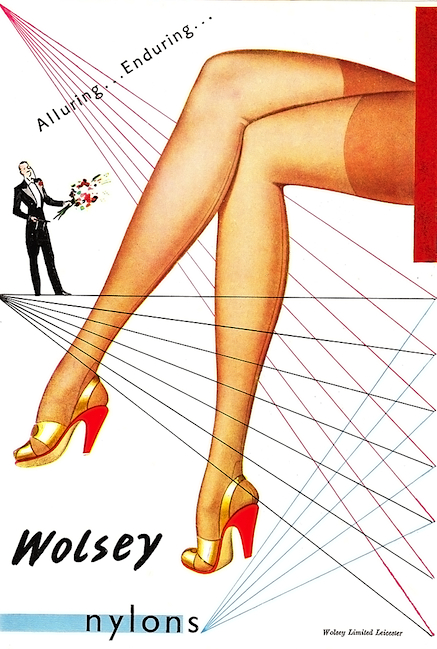
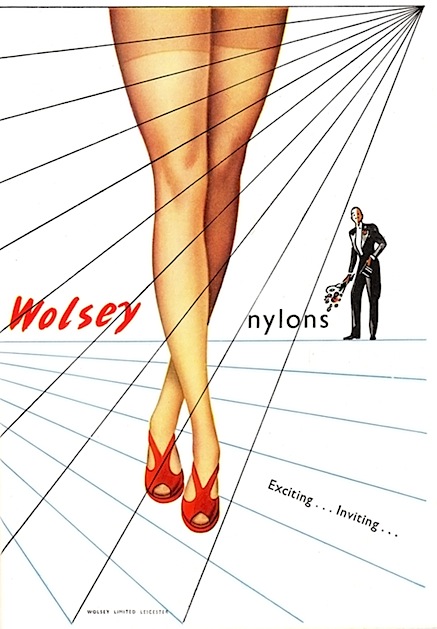
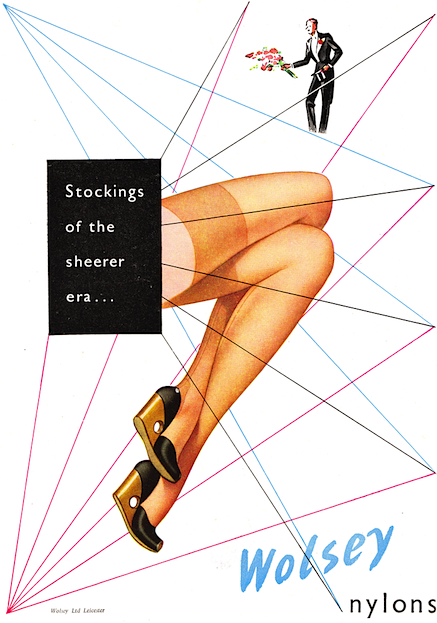
Leicester, UK
Cutting-edge adverts and shapely graphic art feed the seemingly insatiable post-war appetite for fine-denier nylon stockings…
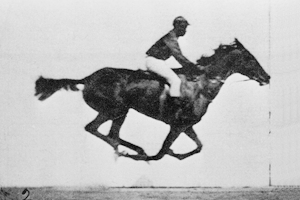
Best wishes for the Chinese/Lunar New Year!
(It’s the year of the wooden horse, same as my birth year).
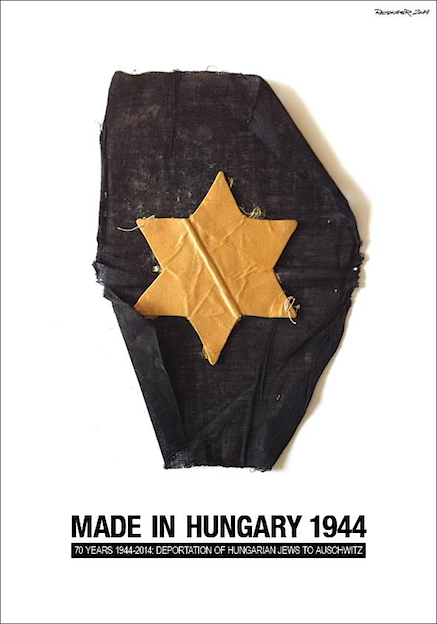
(across the United Kingdom)
Holocaust Memorial Day takes place on 27 January every year in the UK. It marks the anniversary of the liberation in 1945, by the Soviet Union, of the largest Nazi death camp, Auschwitz-Birkenau, towards the end of World War II. The Holocaust (or Shoah in Hebrew) claimed the lives of six million Jewish men, women, and children between 1933, when Hitler came to power in Germany, and 1945, when the Nazis were finally defeated.
The commemorative poster shown above is by my friend Dan Reisinger: “This is a photo of an authentic yellow Star of David we were forced to wear prior to deportation—preserved in my family since 1944.”
(Thanks to Iva Babaja for the link).

Paris, France
65 years ago today, on 10 December 1948, the Universal Declaration of Human Rights was adopted by the United Nations General Assembly at Palais de Chaillot, Paris. The Declaration arose directly from the experience of the Second World War and represents the first global expression of rights to which all human beings are inherently entitled.
On that day, the Declaration was adopted by a vote of 48 in favor, 0 against, with eight abstentions: the Soviet Union, Ukrainian SSR, Byelorussian SSR, People’s Federal Republic of Yugoslavia, People’s Republic of Poland, Union of South Africa, Czechoslovakia and the Kingdom of Saudi Arabia. (The South African position can be seen as a kind of protection of the system of apartheid in South Africa, which clearly violated any number of articles in the declaration. The Saudi Arabian delegation abstained mostly for two reasons: because of Article 18 which states that everyone has the right “to change his religion or belief” and because of Article 16 on equal marriage rights. Eleanor Roosevelt attributed the abstention of the Soviet bloc nations to Article 13, which provided the right of citizens to leave their countries).
Many consider the Declaration to be the most important document ever written, essentially “the international Magna Carta of all mankind.” As such, it has also become the most translated document in the world.
10 December was established as Human Rights Day in 1950, and has been commemorated annually around the world on this date ever since.
Read the full text of the Universal Declaration of Human Rights here, or download a PDF of the text here.




